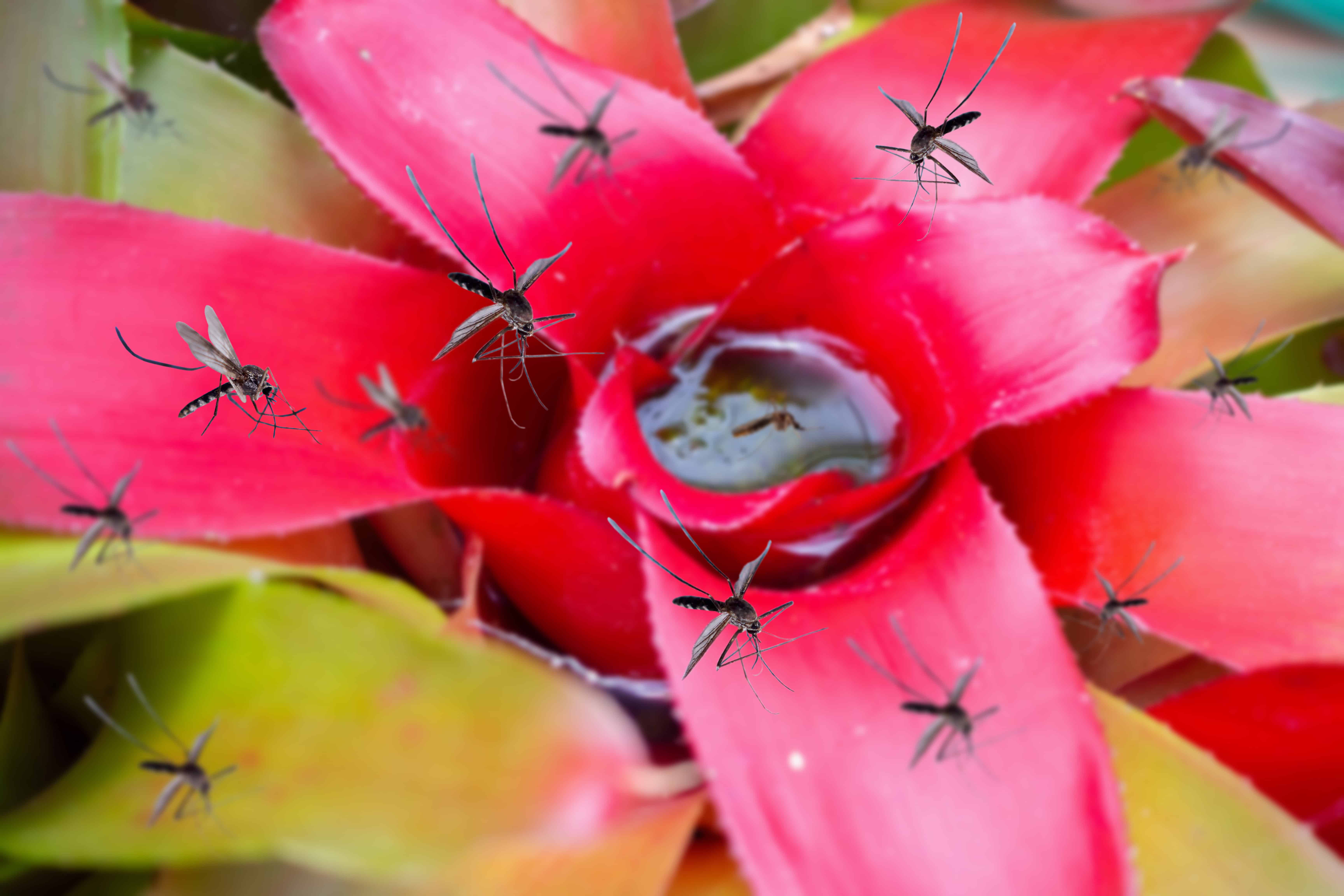
Mosquitoes are tiny, persistent pests in our existence, and shockingly, our beloved indoor plants are one of the reasons they tend to flock to our homes. However, it is not entirely what you think, and I’m here to tell you why AND how knowing why can help you get rid of these unwanted guests.
Eliminate mosquitoes in your indoor plants by removing their feeding and breeding grounds, then apply BTI insecticide. Also, minimize nectar-rich plants; empty standing water in saucers & plants’ foliage; and install screen doors & windows to prevent mosquitoes from nesting indoors.
If you do have mosquitoes in your home, the most common reason is standing water and if you have standing water, you may be over-watering your plants. If you aren’t 100% certain when watering is necessary, check out this section of our 4 Basic Elements of Houseplant Care article about how to determine when to water.
Read on below as I elaborate on indoor plants, mosquitoes, mosquito-repelling plants, and tips to prevent your home from becoming an oasis for mosquitoes.
(As an Amazon Associate, I earn from qualifying purchases.)
Table of contents
What is the link between Indoor Plants and Mosquitoes?
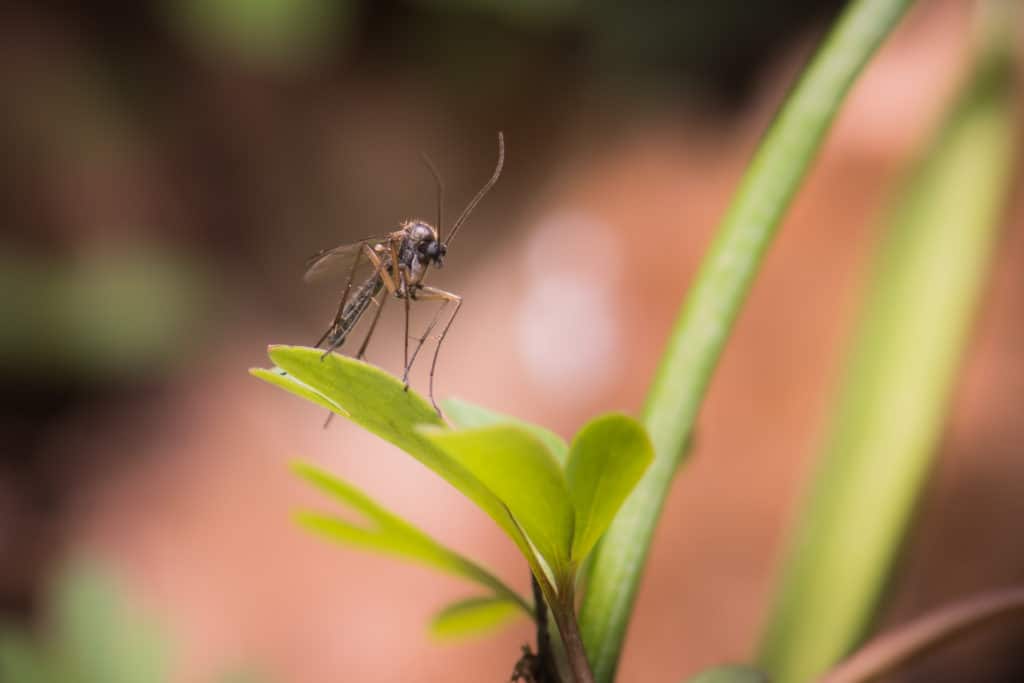
It is generally uncommon for mosquitoes to be considered houseplant pests (Article Link). They don’t cause damage to the plants’ growth as opposed to sap-sucking insects like aphids and scales. They are a much bigger nuisance to us humans, and anyone who has ever suffered from mosquito bites knows this to be true. But the real question is: are the presence of mosquitoes a side effect of having indoor plants in your living space?
The answer is Yes! There is a link between the two, below are three possible reasons why indoor plants could be the root of a mosquito infestation, namely:
- Standing water
- Aphid honeydew
- Nectar-rich flowers
The main reason these problems occur has a lot to do with the plant’s living conditions. Suppose the plant is not being taken care of properly. In that case, plant health and other problems build on top of each other, and mosquitoes just so happen to be one of the further problems that come as a result. Mosquitoes can push a plant owner to the brink and even contemplate houseplant homicide – houseplanticide? But before you do something you’ll regret, let’s see if we can rekindle your green love.
What do mosquitoes feed and breed on?
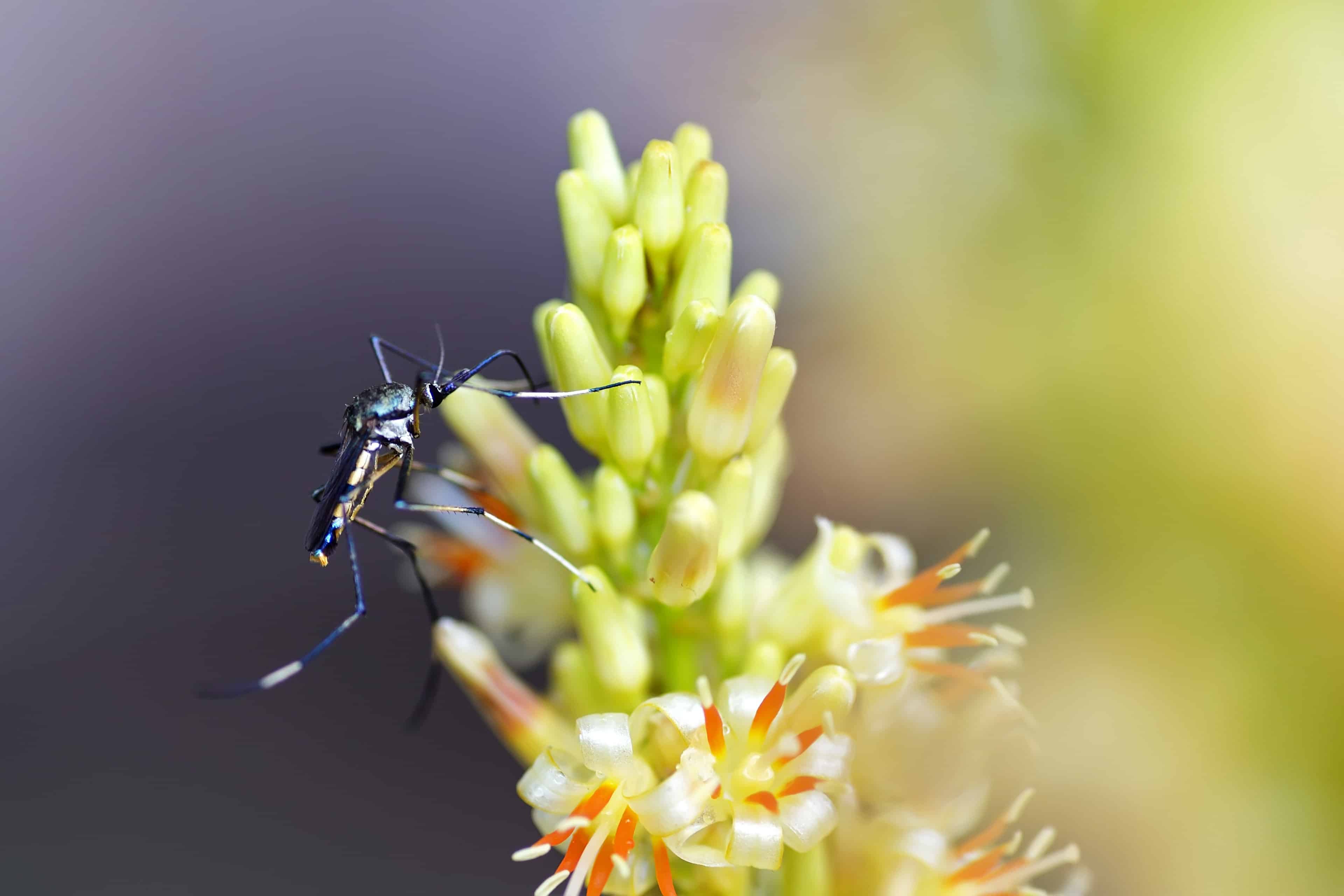
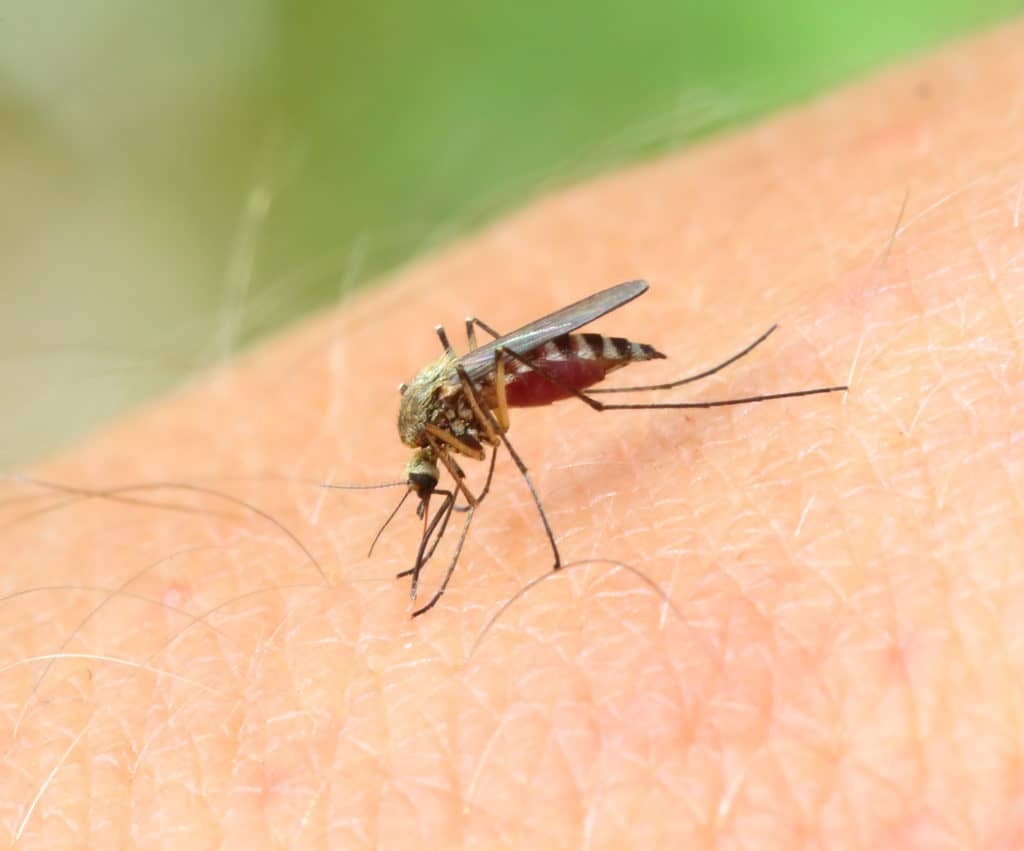
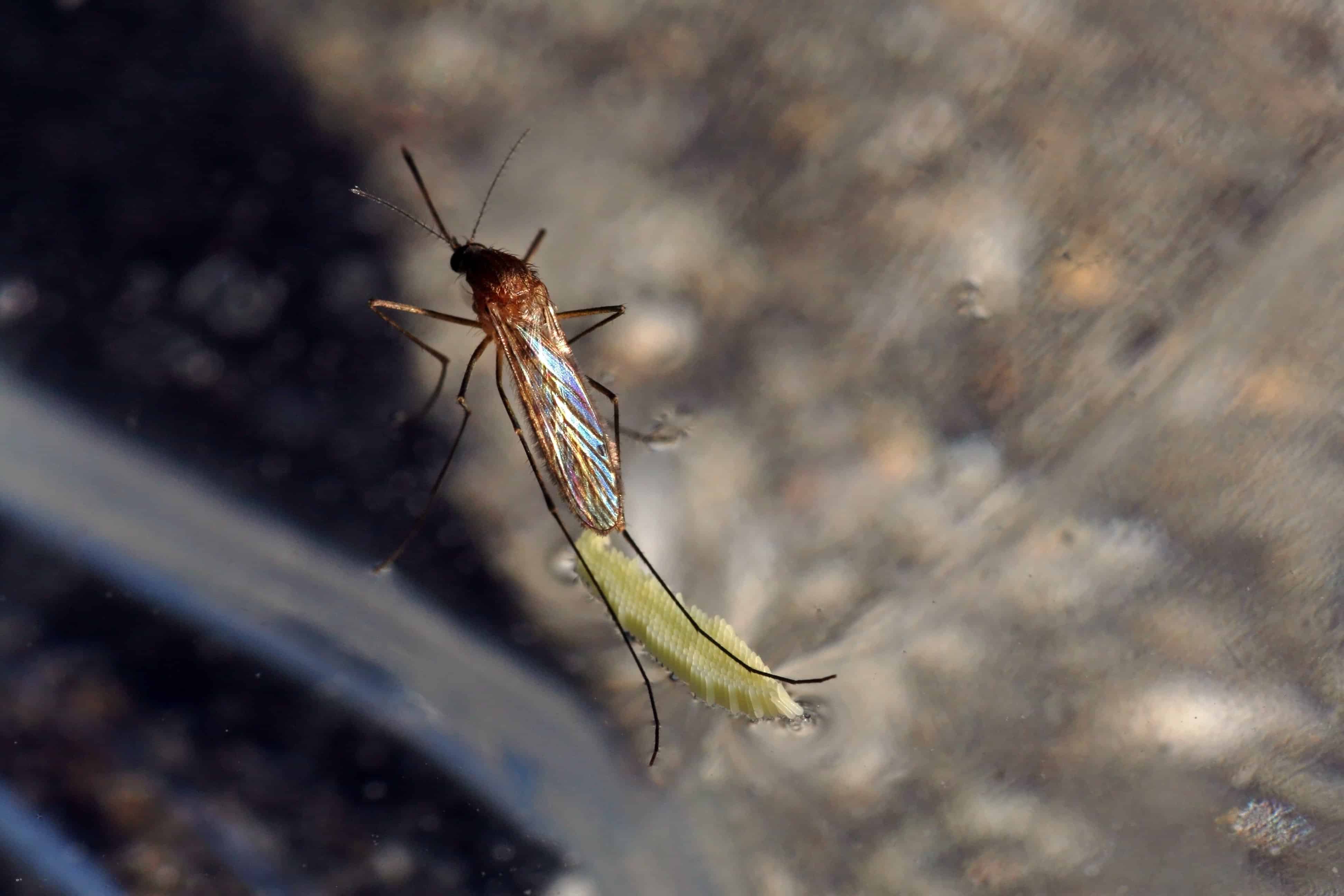
When it comes to feeding, male and female mosquitoes gravitate towards sources that contain sugar for their energy. Generally, they find these in nectars, aphid honeydew, and occasionally plant juices. It is a common misconception that blood is the only meal mosquitoes feed on. In fact, only the female mosquito partakes in this. It is to ensure they receive the nutrients, specifically proteins, needed to lay their eggs.
When they are ready for egg production, these female mosquitoes will seek out an aquatic environment that will fill the needs of the larvae while it develops into pupae. The setting could come in many forms, from the smallest of a hidden water reservoir in plants (such as a folded over foliage containing water) to the largest body of water like a lake. The eggs hatch into larvae on these stagnant waters and feed on the microorganisms swimming on the surface. Once they are large enough to metamorphose into pupae, they will spend their time on the surface or below the water, waiting until they emerge as adult mosquitoes.
Are mosquitoes attracted to indoor plants?
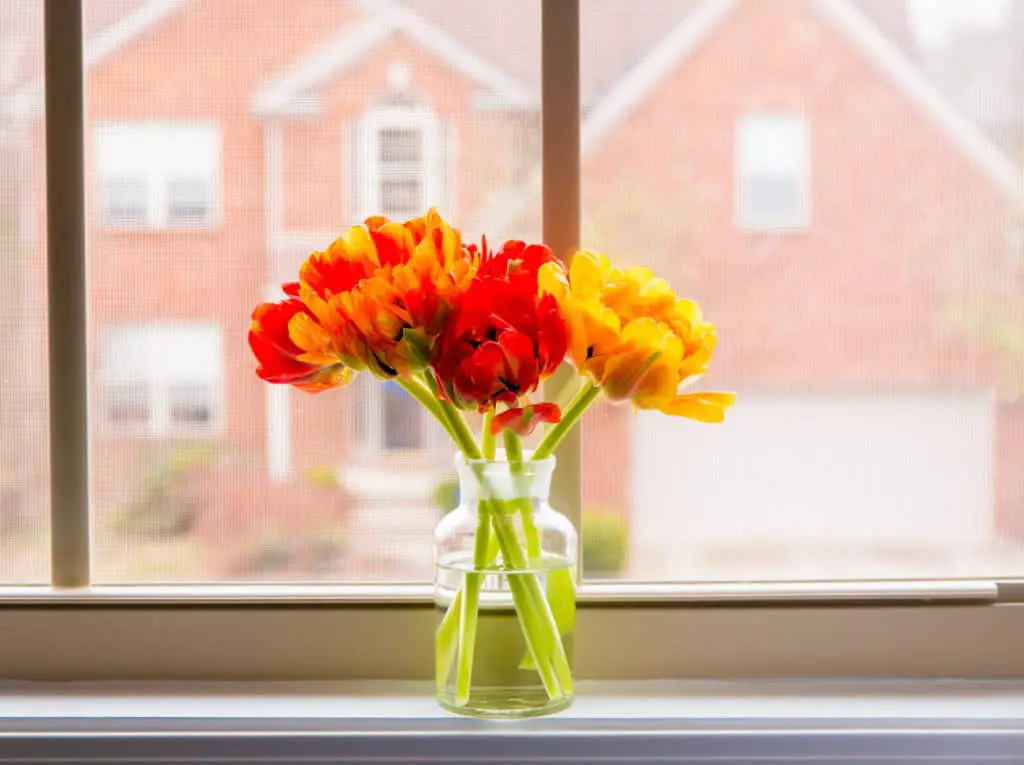
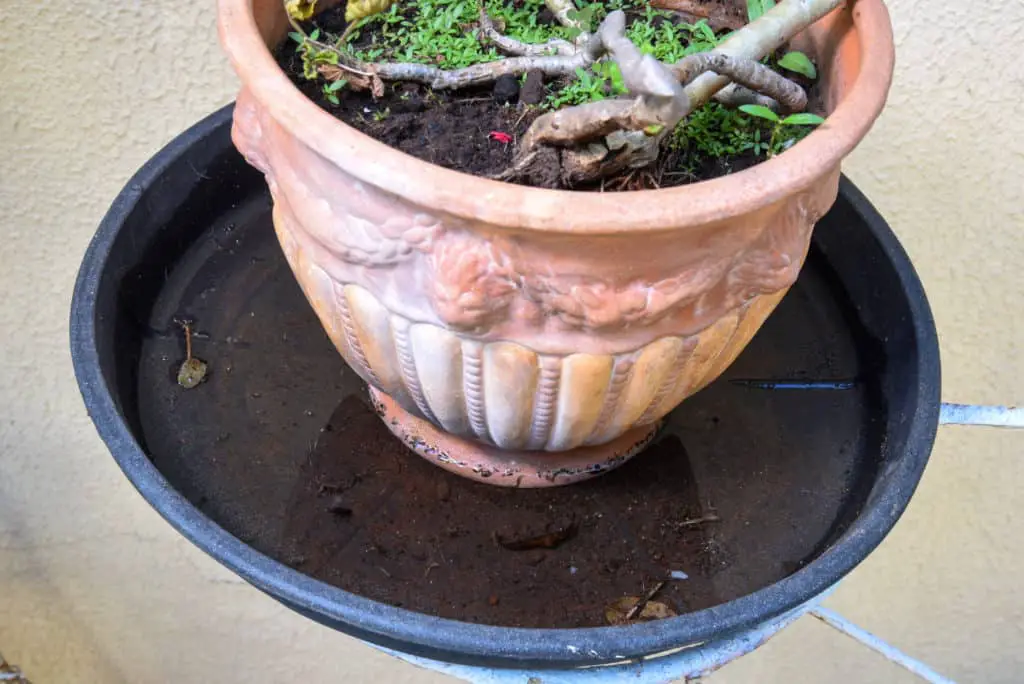
The short answer is Yes! With the above paragraph in mind, consider the type of houseplants in your home. Flowering plants, particularly, are a good source of nectar for bugs to be attracted to, including mosquitoes. They will feed on these flowers to absorb sugar as their energy source, assuming that the mentioned flowers are being taken care of in the best conditions.
However, the most likely reason your plant has many mosquitoes is high humidity from overwatering the plants and accumulating standing water at the bottom of the pot. Generally speaking, water shouldn’t be left to build up as it is detrimental to the plant’s health. Not only are you waterlogging your plants, leading to root rot, but you are also inviting pests to come to live in their wet soil environment. Another reason that goes hand in hand with high humidity is the lack of air circulation. Consistent airflow is essential because it helps the soil dry faster after watering and helps prevent fungal infection.
A prevalent pest that loves to settle in these bog-like conditions is aphids. They are tiny, sap-loving insects that will suck the life out of your plant and secrete a sticky, sugar-rich liquid on the leaves and stems. This secretion is called honeydew – another source of nutrients mosquitoes hover around your houseplant.
What else are mosquitoes attracted to in your home?
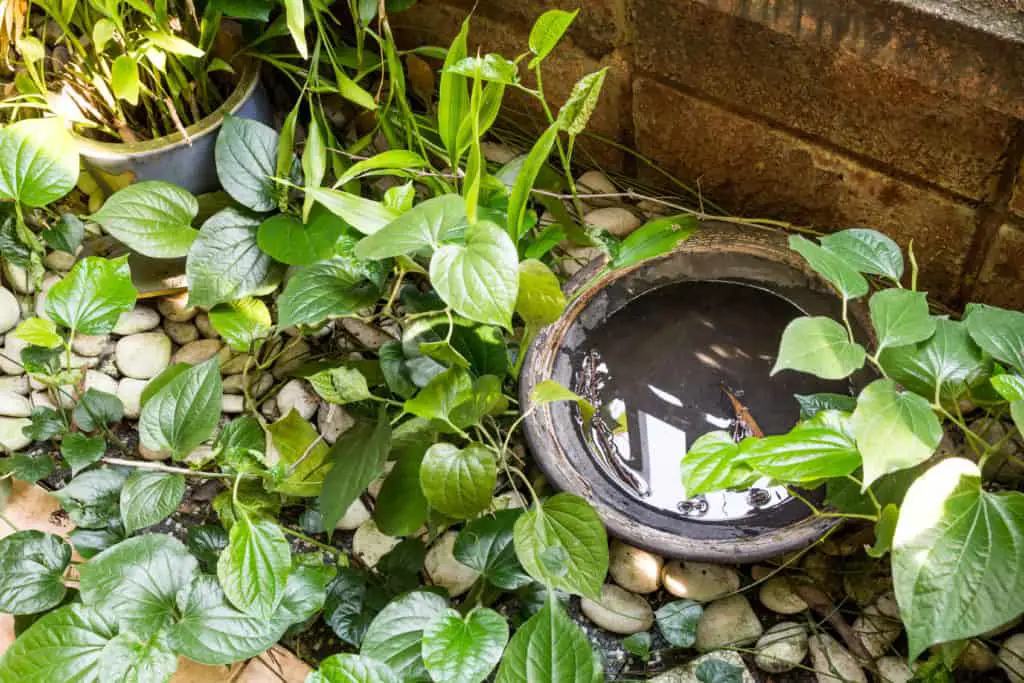
Indoor plants aren’t the only thing harboring stagnant water for mosquitoes to culminate around. It’s a good practice to check around your homes for other possible reservoirs of water that could serve as a pit for mosquitoes to breed. It could be under your sink, in your pets’ bowls, in the laundry room, or even in your shower. For those with a basement, check your sump pump for small quantities of leftover water. Even just a puddle of water is enough for a colony of mosquitoes to breed in and multiply.
Can indoor plants repel mosquitoes?
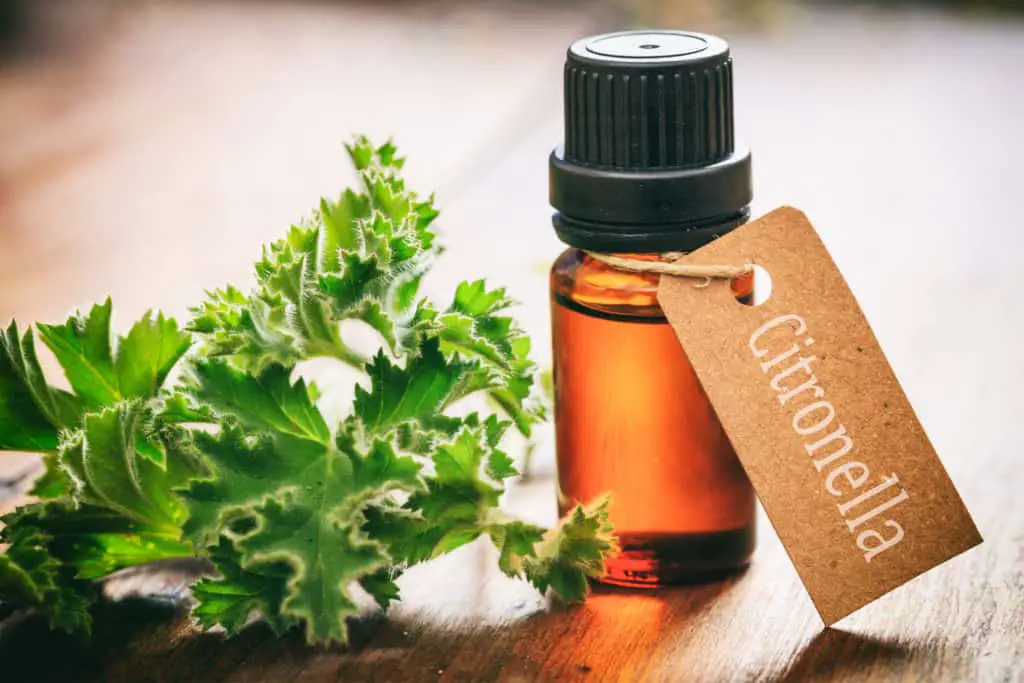
The short answer is No. There has been a common belief that certain indoor plants can repel mosquitoes, making them suitable to have around the home. This belief is not entirely true.
The oils within the plants’ leaves are extracted to make up the main ingredients in a store-bought mosquito repellent. Yes, this means that the plants do have repellent properties that prevent mosquitoes from hovering around. But these don’t work as effectively when the oils are trapped in the mother plant itself. While mosquitoes will tend to avoid these plants, that doesn’t mean they will dodge the entire room or somehow find a way out of your house.
Lemon eucalyptus or citronella are the common ingredients found in most mosquito repellents. These Insect Repellent Spray and Incense Repellent Sticks on Amazon are good examples. However, simply having a lemon eucalyptus or citronella plant in your home won’t ward off mosquitoes as effectively. For these plant oils to even take effect, it would require you to rub the leaves to release the oil into the air or break the leaves off and rub it onto your skin to prevent mosquitoes from biting you. So unless you’re into that kind of heavy interspecies petting (no judgments here, you do you, you wildflower), I would probably give this method a rest.
How do I prevent mosquitoes and eliminate them?
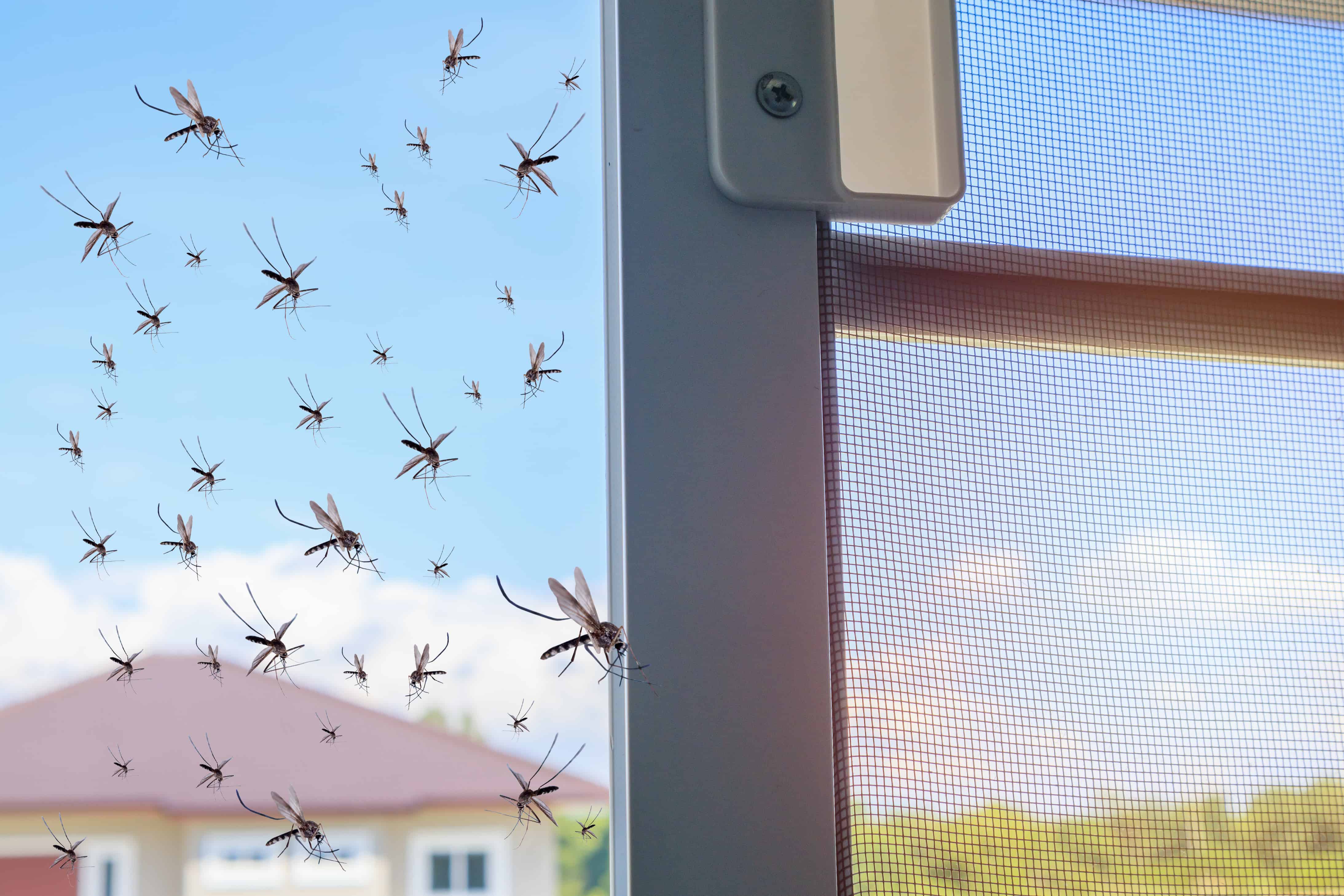
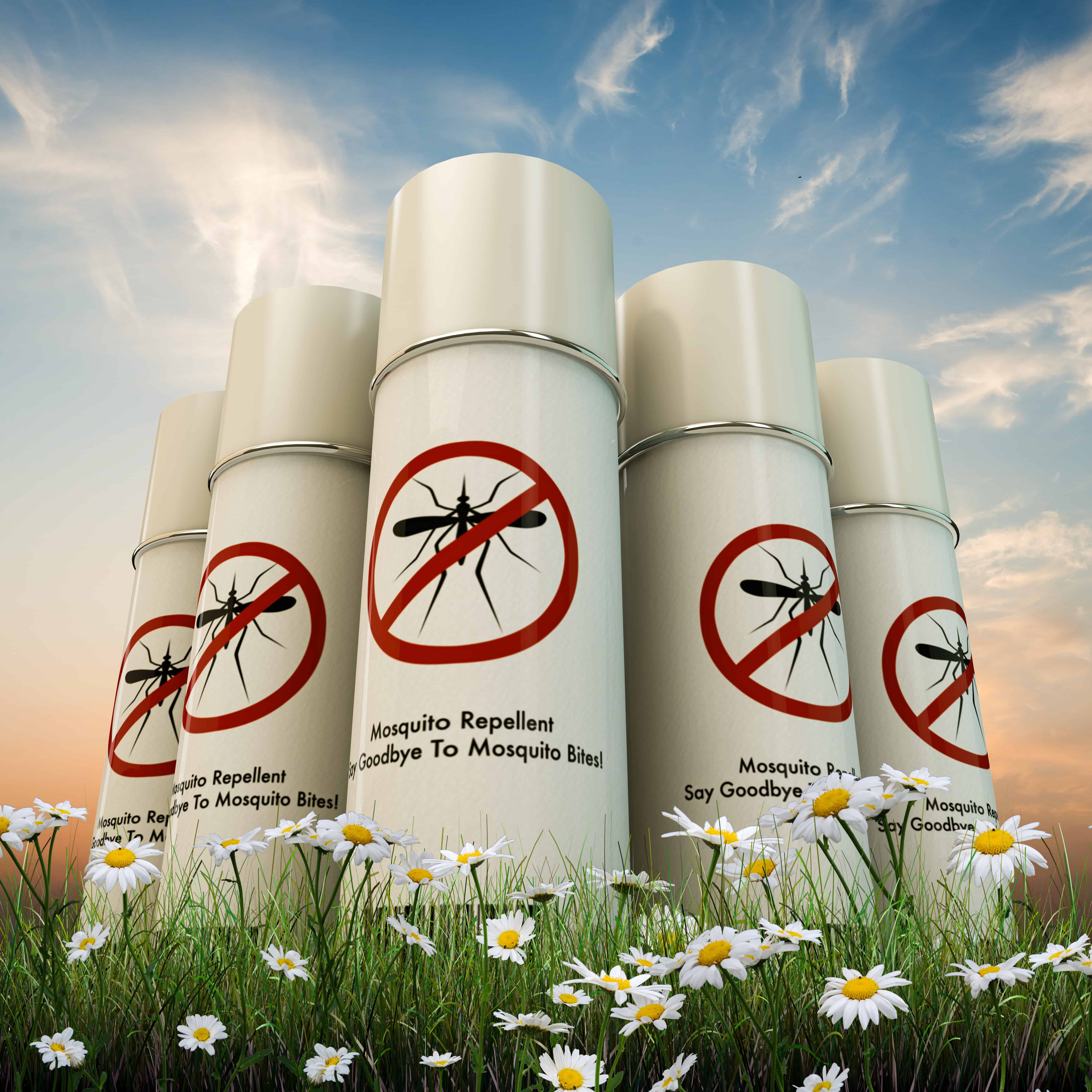
There are two ways to prevent and eliminate mosquitoes from invading your homes, and that is by removing the source and chemical control.
As I’ve covered above, stagnant water is the number one reason why mosquitoes are rampant in an area. Investigating and eliminating all possible breeding areas in your homes gives you a higher chance of preventing mosquitoes from developing. You should throw away any unused items that can hold water, keep your rain gutters unclogged and clean, fix your leaky pipes, and maintain a tidy yard.
To keep mosquitoes out of your houseplant, ensure excess water from the plant saucer is thrown away, then vigorously wash with soapy water before drying out thoroughly. Also, get rid of stagnant water hiding between your plants’ foliage by gently tipping the plant over until the water completely drains out. Be sure to check your plant for pests like aphids that could be nesting and sucking the sap out of the plant. This allows you to eliminate bugs from your houseplants and significantly reduce the probability of mosquitoes hanging around to feed on their honeydew secretions. Remember: honeydew is a sure sign of plant pests.
Some plants like Bromeliads can hold water in their cup-like center, making a breeding ground for mosquitoes. With these plants, the best practice is to flush the plants with fresh water every few days so that any eggs or larvae that have accumulated there will wash away.
Also, consider installing or repairing window and door screens to prevent mosquitoes from entering your home. However, it doesn’t mean you should be lax in your plant care – remember not to overwater your plants and leave them in standing water. Remember: standing water is an invitation for mosquitoes and other pests to live on.
Chemical control using BTI (Bacillus Thuringiensis Israelensis) insecticide works hand in hand with getting rid of the source. Still, it should not be the immediate answer to eliminating and preventing mosquitoes indefinitely. You should remove the source first before considering chemical control, as source elimination is usually enough. There’s no point in constantly applying insecticides if there is still an existing breeding colony hiding in your home.
BTI is a bacterial agent designed to only affect mosquitoes, fungus gnats, and blackflies. According to the EPA, BTI is not toxic to people or pets, so it is alright to spray it indoors. Although, if you want to be on the safe side, you can take your houseplants outdoors, wait to catch mosquitoes in the act, and spray them to oblivion.
However, note that BTI will take a while to kill the pests and needs reapplication every two weeks. I recommend getting this Quick Kill Mosquito Bits on Amazon.
There will be instances where you can’t drain standing water like a pond or a fountain. The only option is to use pellets or mosquito dunk treatments like these Summit Mosquito Dunks on Amazon. Treating a decorative water feature in your yard with larvicide will kill the mosquito eggs. However, if you keep a fish pond, the treatment is unnecessary. Most pond fish act as natural predators to consume mosquito larvae. In all cases, please read the instruction label carefully and follow the directions as needed.
Mosquitoes are a menace, but if we take care of our plants and home right, they won’t come knocking uninvited into our living space any time soon.
References:
https://hgic.clemson.edu/factsheet/mosquito-control-in-and-around-the-home/
https://hgic.clemson.edu/factsheet/importance-of-reducing-mosquito-breeding-sites/
https://www.cdc.gov/mosquitoes/mosquito-control/athome/inside-your-home.html
https://www.thespruce.com/what-really-works-with-mosquito-control-2656381
https://www.americanpest.net/mosquitoes-and-plants
https://en.wikipedia.org/wiki/Mosquito#Morphology
https://en.wikipedia.org/wiki/Honeydew_(secretion)
https://www.gardeningknowhow.com/plant-problems/pests/pesticides/bti-insecticide-information.htm


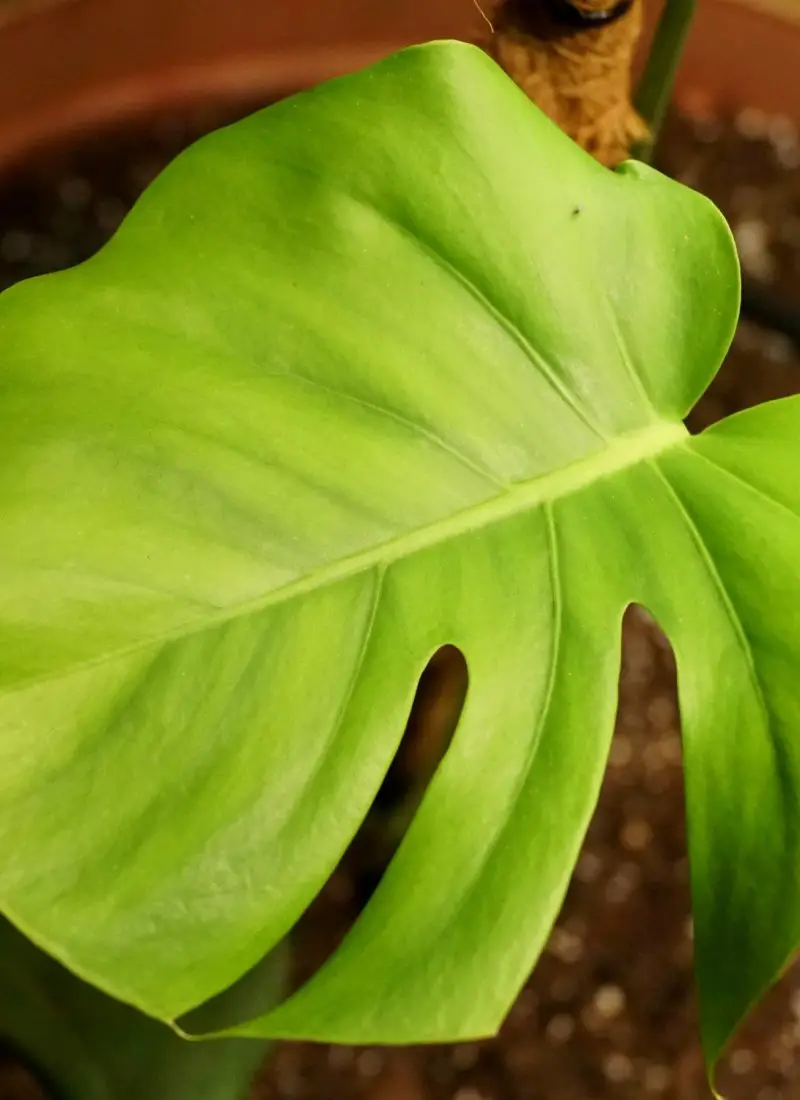
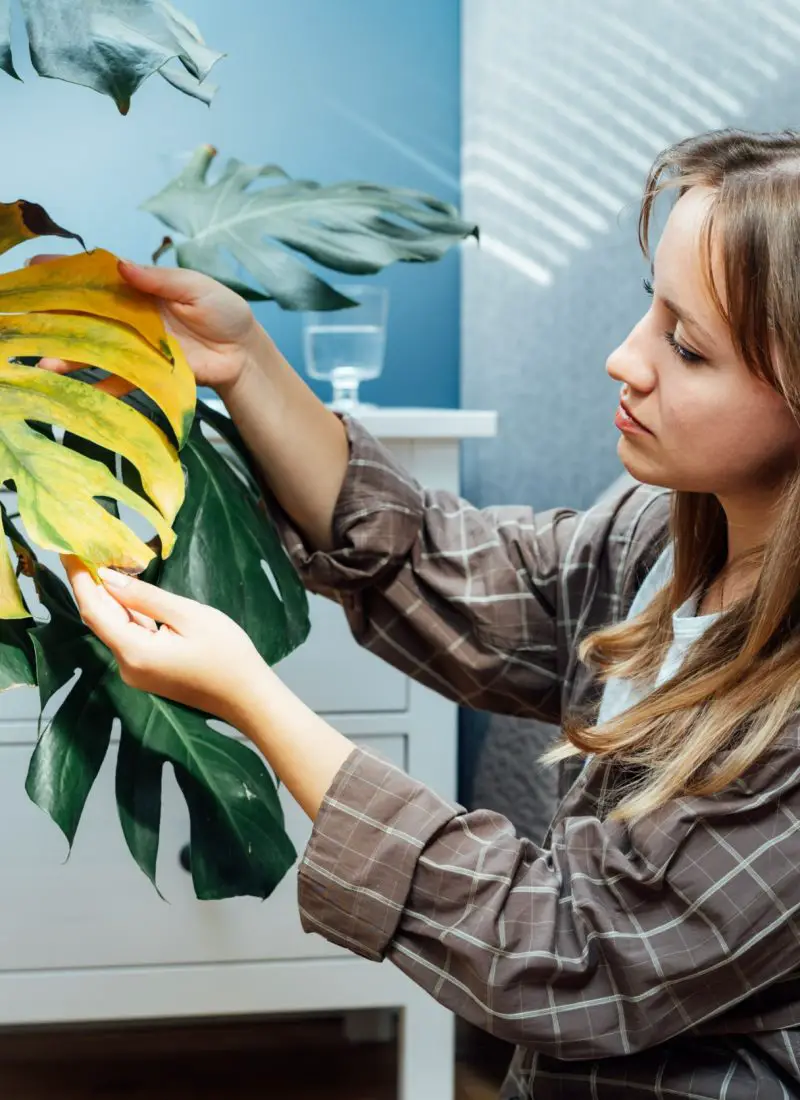
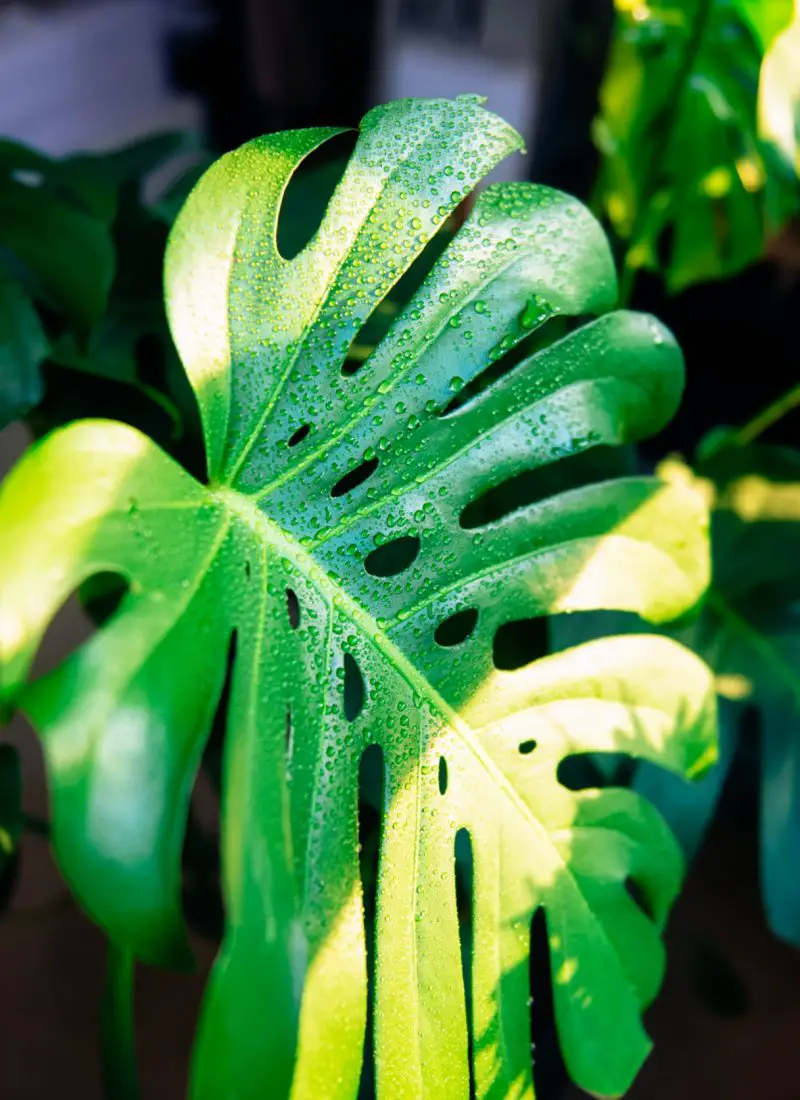
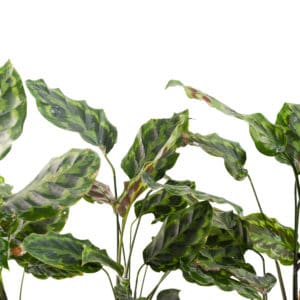

I really like your blog.. very nice colors & theme. Did you design this website yourself or did you hire someone to do it for you? Plz respond as I’m looking to construct my own blog and would like to find out where u got this from. cheers
Thank you! This is a theme from https://17thavenuedesigns.com/ Good Luck!